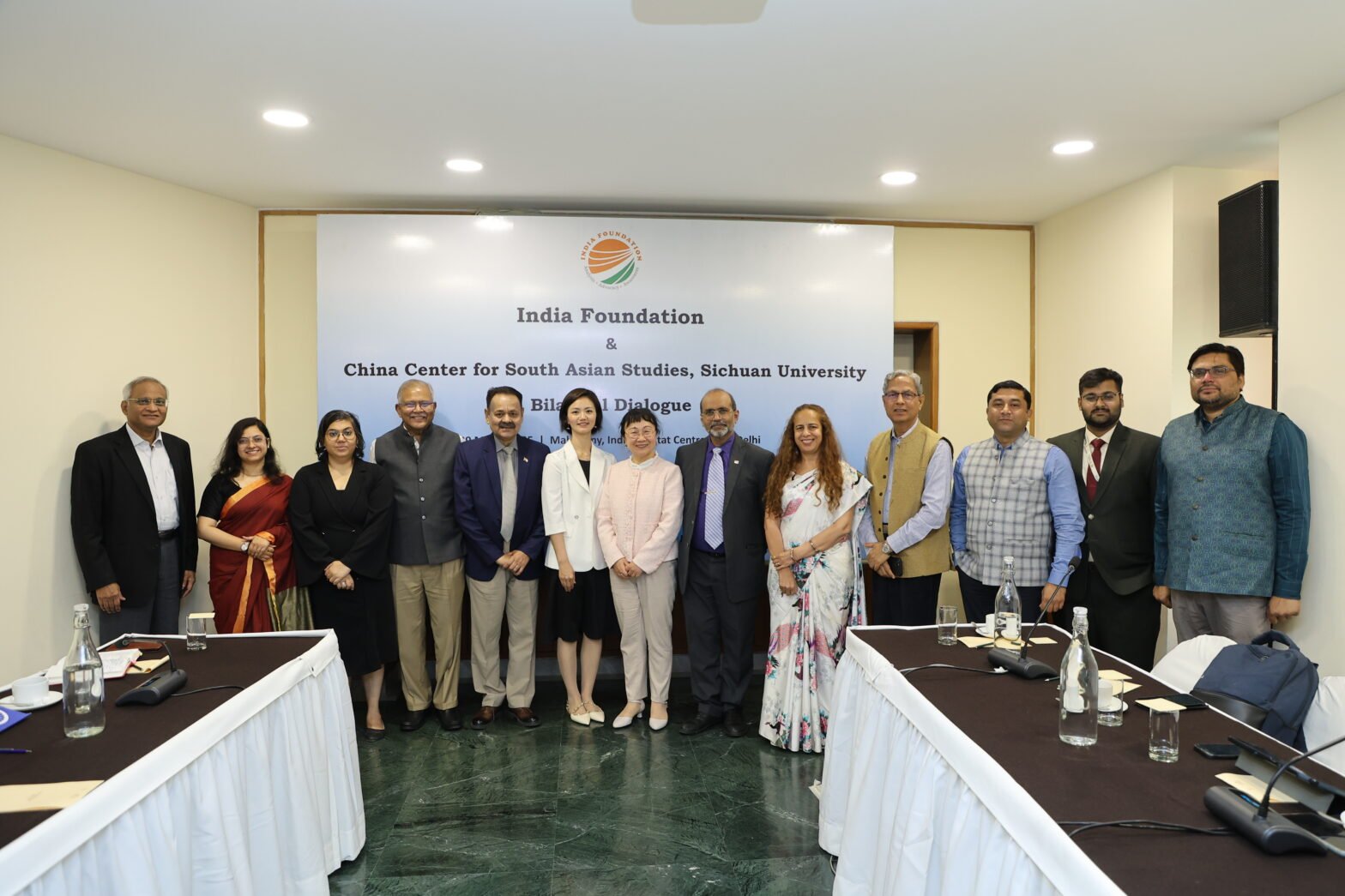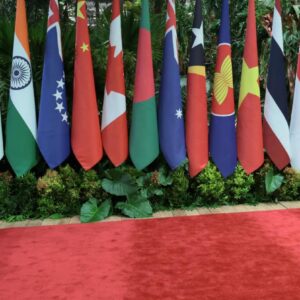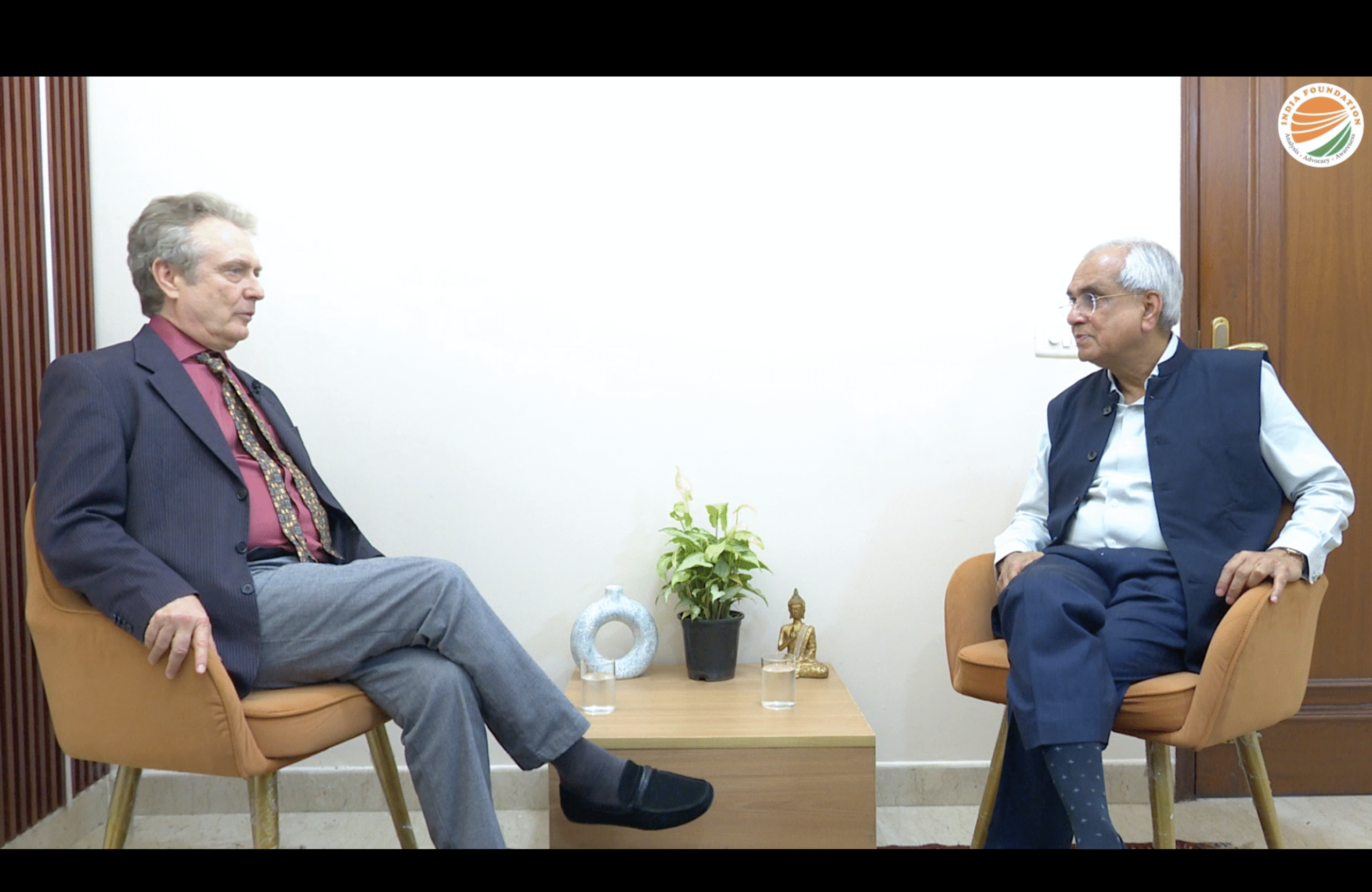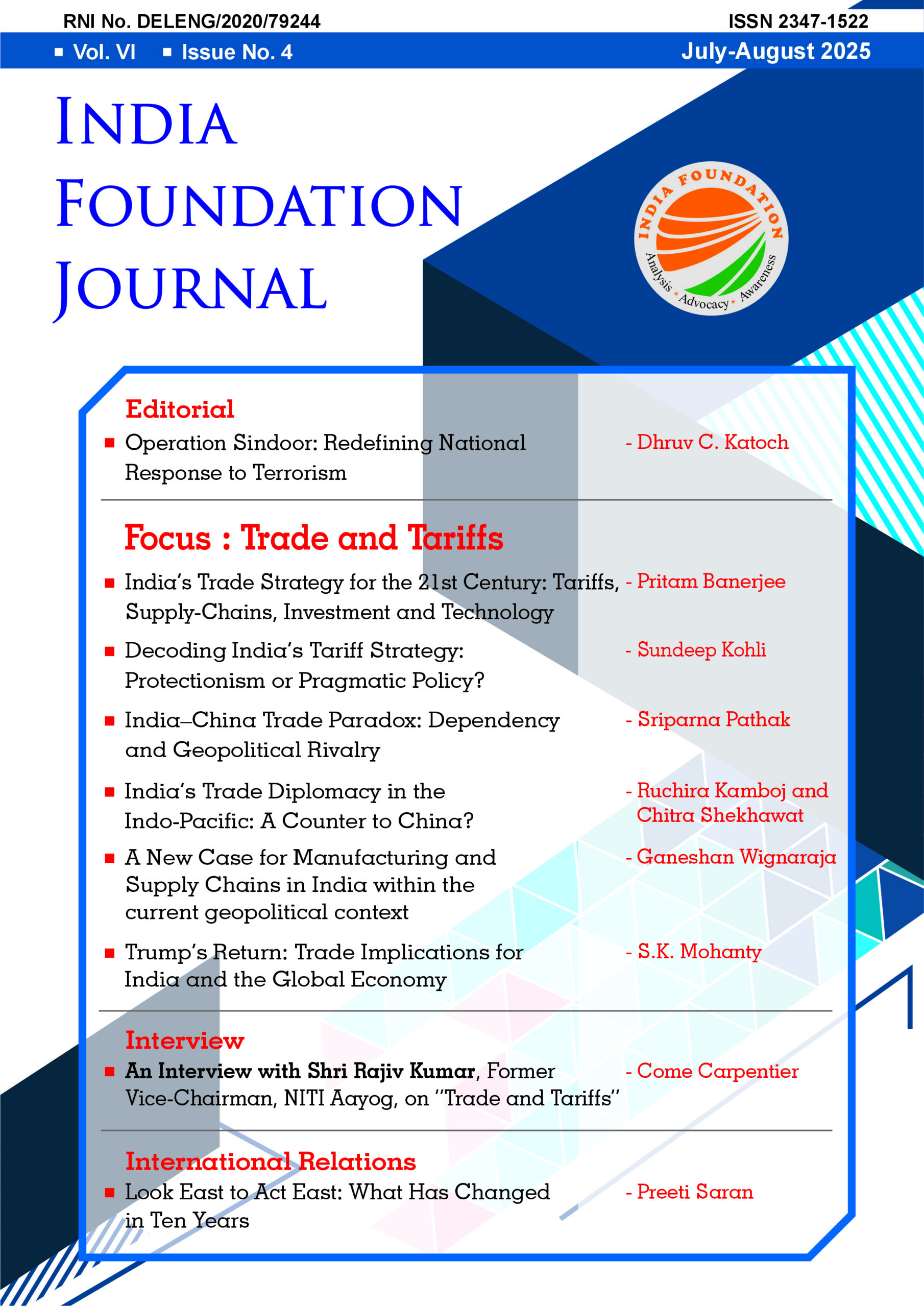On 29 March 2025, India Foundation hosted a two-member senior academic delegation from Sichuan University, focusing on the evolving nature of India-China relations and avenues for future engagement. The dialogue featured distinguished academics, diplomats, and strategic experts from both sides, offering a platform for discussions.
The visiting delegation from Sichuan University comprised Prof. Qiu Yonghui, Vice-Director and Professor at the China Centre for South Asian Studies, Sichuan University and Dr. Xiao Jianmei, Associate Professor at the China Centre for South Asian Studies, Sichuan University.
Representing the India Foundation were Capt. Alok Bansal, Director, India Foundation; Admiral Shekhar Sinha, Chairman of the Board of Trustees, India Foundation; and Maj. Gen. Dhruv C. Katoch, Director, India Foundation. The dialogue also included prominent Indian scholars and experts, including Amb. Ashok Kantha, Former Ambassador of India to China, Prof. Srikanth Kondapalli, Professor, JNU; Prof. Swaran Singh, Professor, JNU; Dr. Sriparna Pathak, Associate Professor, O.P. Jindal Global University; Dr. Abhishek Pratap Singh, Assistant Professor, University of Delhi; Dr. Geeta Kochar, Professor, JNU; Ram Sengupta, Siddharth Singh, Senior Research Fellow, Arpan A. Chakravarty, Research Fellow and Tejusvi Shukla.
The Sichuan University delegation focused on the importance of enhancing educational exchanges, particularly between Indian and Chinese institutions. They highlighted the shared civilizational foundations of both countries, which can serve as a basis for stronger mutual understanding and cooperation.
However, the Chinese side-maintained silence on sensitive boundary disputes, choosing instead to stress the importance of focusing on multilateral cooperation in platforms such as BRICS and SCO, rather than contentious bilateral issues. The delegation also raised the need for visa facilitation, direct flights, noting current barriers to academic and people-to-people exchanges, and proposed enhanced cooperation among think tanks and media organizations to improve public perceptions on both sides.
In contrast, the India Foundation delegation presented a realistic assessment by presenting the roadblocks which affects the India-China relations from the past few years. These include the unresolved boundary dispute, which has led to a significant trust deficit, the growing trade imbalance heavily skewed in China’s favour, and China’s continued involvement in projects like the China-Pakistan Economic Corridor (CPEC) that violate Indian sovereignty in the Union Territory of Ladakh. Other issues raised included China’s position on Tibet, its influence over critical sea lanes of communication, and the broader strategic competition in the Indo-Pacific.
The Indian side emphasized that any sustainable improvement in bilateral relations would require management of our core issues, namely the long boundary dispute till its final resolution, particularly the boundary issue.
While the dialogue brought out some common ground, especially in educational and civilizational terms, it also made clear the deep strategic divergences and trust deficits that must be addressed. Both sides recognized the importance of continued engagement, particularly through academic and think tank networks, even as political and security tensions persist. The session served as a reminder of the complexity of India-China relations, underscoring the need for nuanced, layered diplomacy.






